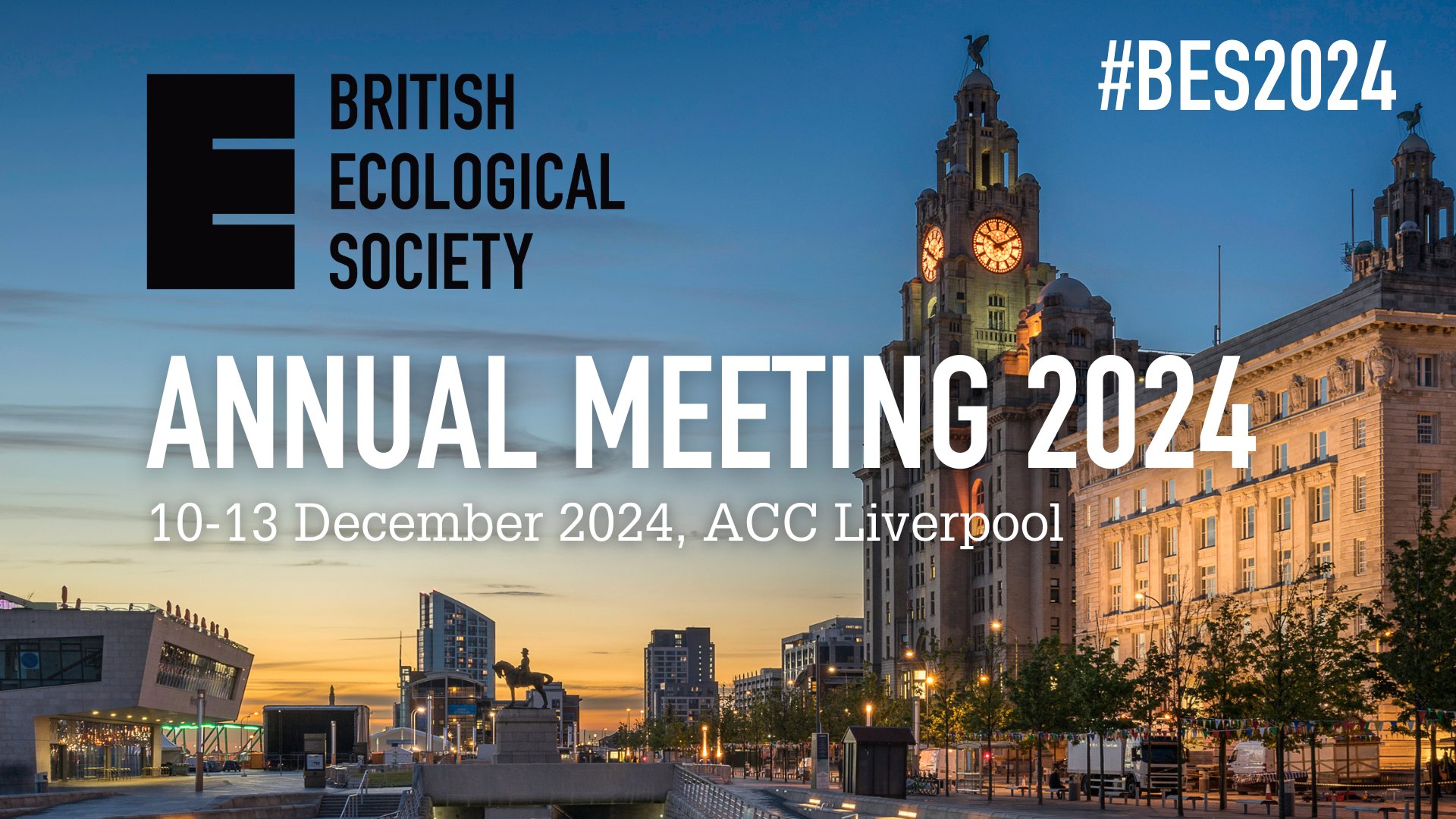BES Annual Meeting 2024
Home | Events | Researchers | BES Annual Meeting 2024

Liverpool, UK
In December 2024, ecologists worldwide will gather in Liverpool for Europe’s largest conference dedicated to ecology.
The British Ecological Society Annual Meeting attracts over 1200 delegates each year in its flagship event, and provides opportunities to meet new colleagues, develop careers, learn new skills, engaging and sharing research with the global ecological community.
This welcoming conference offers each year an exciting programme of plenary sessions with internationally renowned speakers. This year, the event will feature Rob Fish, Professor of Environmental Sustainability at the Imperial College of London, Ana Carnaval, Professor in the Department of Biology of the City College of New York, Lucy Waruingi, Executive Director of the African Conservation Centre, and Nathalie Seddon, Professor of Biodiversity at the University of Oxford and Founding Director of the Nature-based Solutions Initiative.
Besides these interesting plenary sessions, the attendees will have the chance to attend a number of thematic sessions, workshops, networking events and exhibitions.
The conference is especially relevant for LifeWatch ERIC due to the rich programme of its Thematic sessions, addressing the biodiversity crisis, nature restoration policies and practices, novels tools and technologies to tackle current challenges and much more.
LifeWatch ERIC will attend the event with a booth dedicated to research communities facilities, services and resources (including ENVRI-Hub NEXT), and a set of talks dedicated to biodiversity monitoring, conservation strategies, and more. We have summarised here the details of our interventions:
- 11 December at 17:15, Room 3A | Michele Lussu (University of Bologna): “Conservation strategy: spatial prioritization approach using Orchids.” (S11).
- 12 December at 15:15, Room 11B | Andreja Ramšak (National Institute of Biology): “Towards automated biodiversity monitoring -a set-up of Biodiversity Observatory Automation (Thematic Topic under LifeWatch ERIC).” (S34).
- 12 December from 17:00 to 18:30, Hall 2A | Milad Shokri (University of Salento): “Metabolic responses to climate change in invertebrates.” (poster presentation).
- 13 December at 14:00, Room 3B | Francesco De Leo (CNR): “Toward a global relationship between net primary production and biodiversity in marine ecosystems.” (S50).
The full programme is available online. For more information, please visit the official website: https://www.britishecologicalsociety.org/events/bes-annual-meeting-2024
Photo credit: @BritishEcolSoc on X